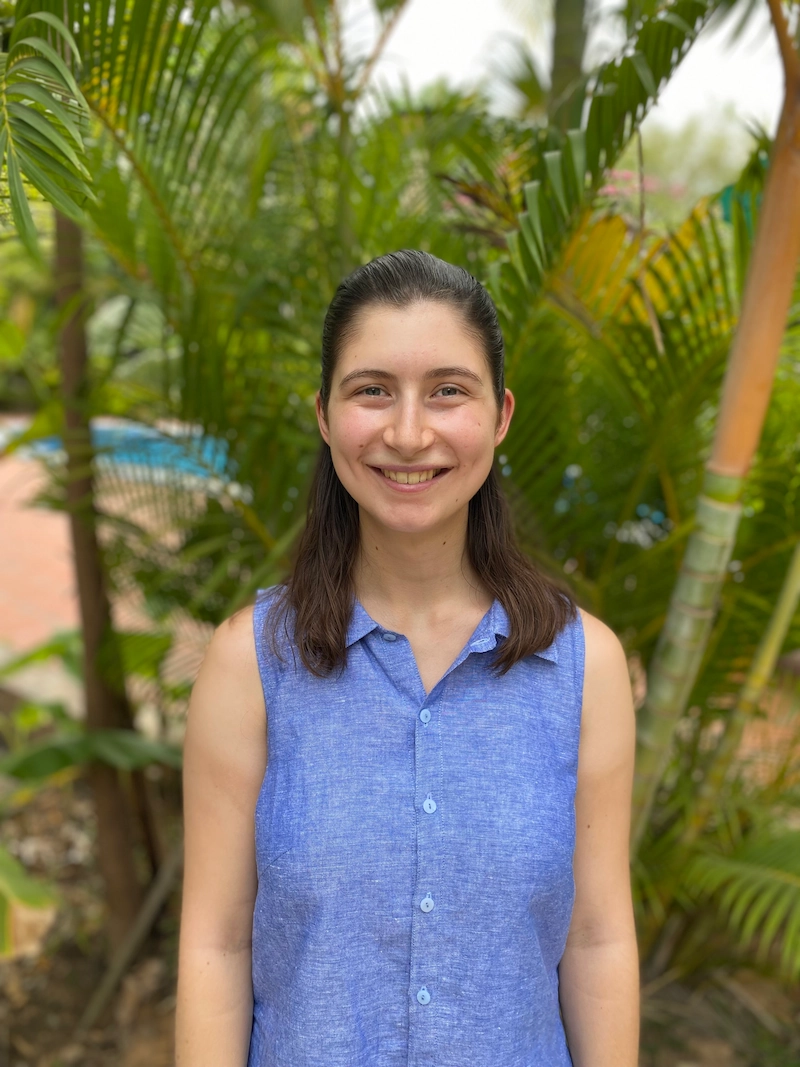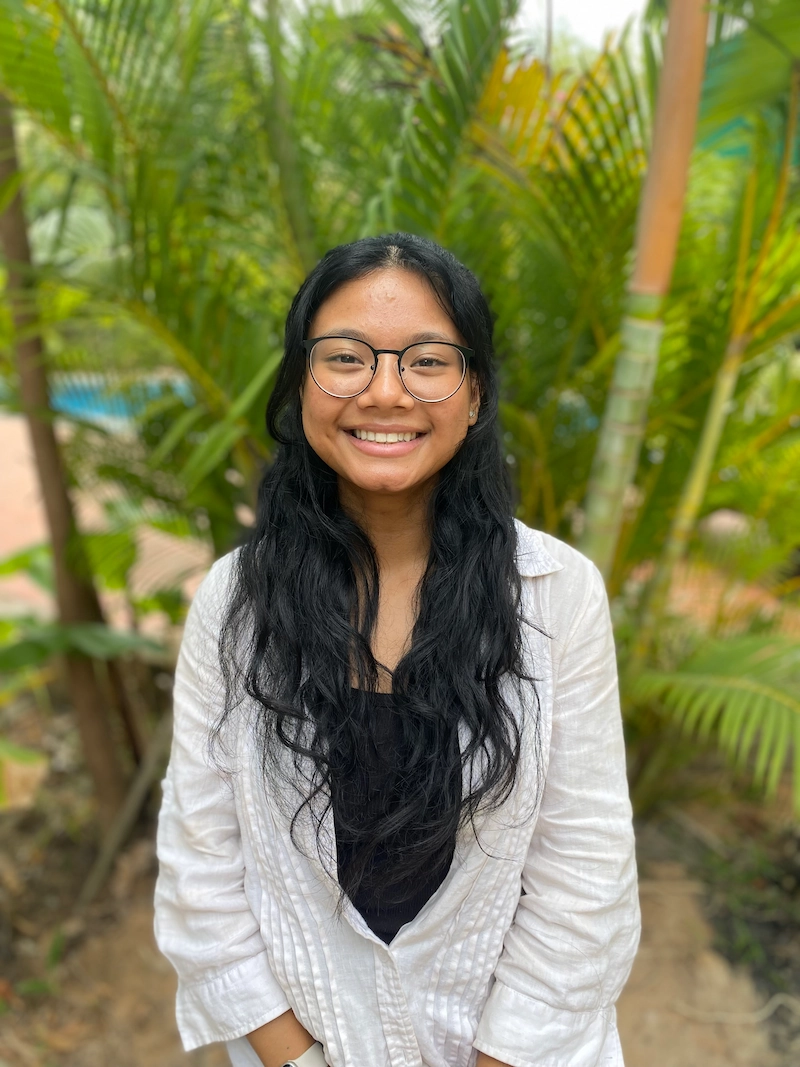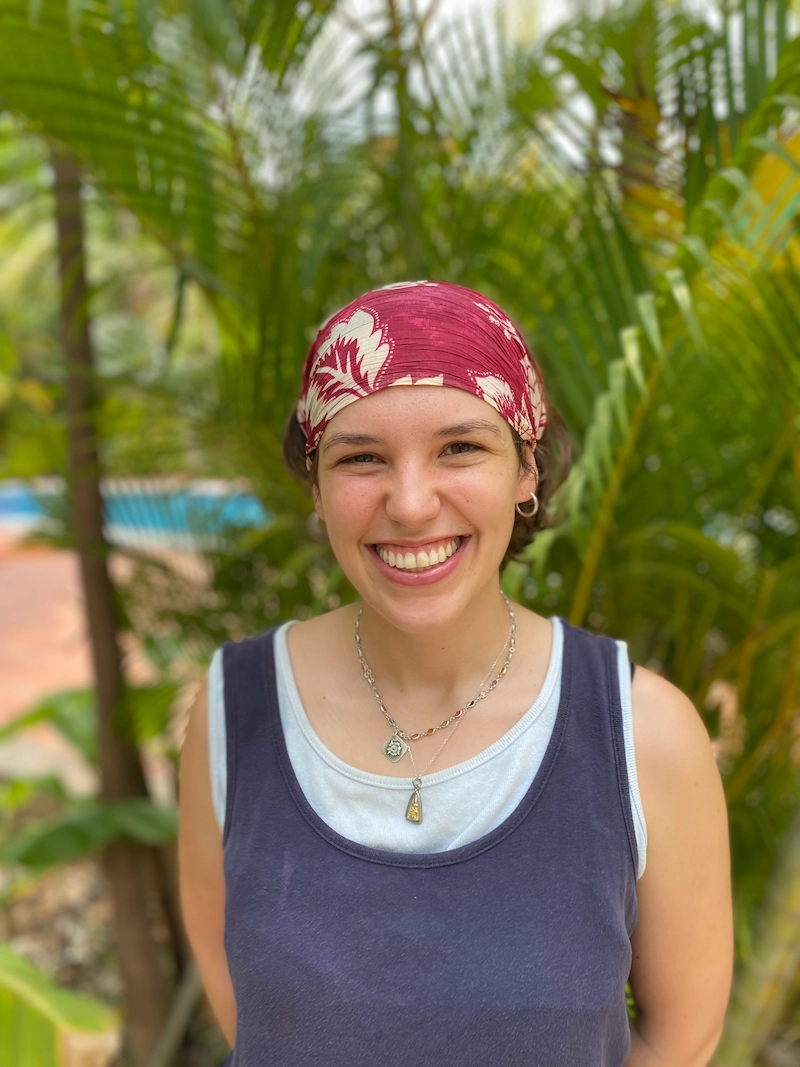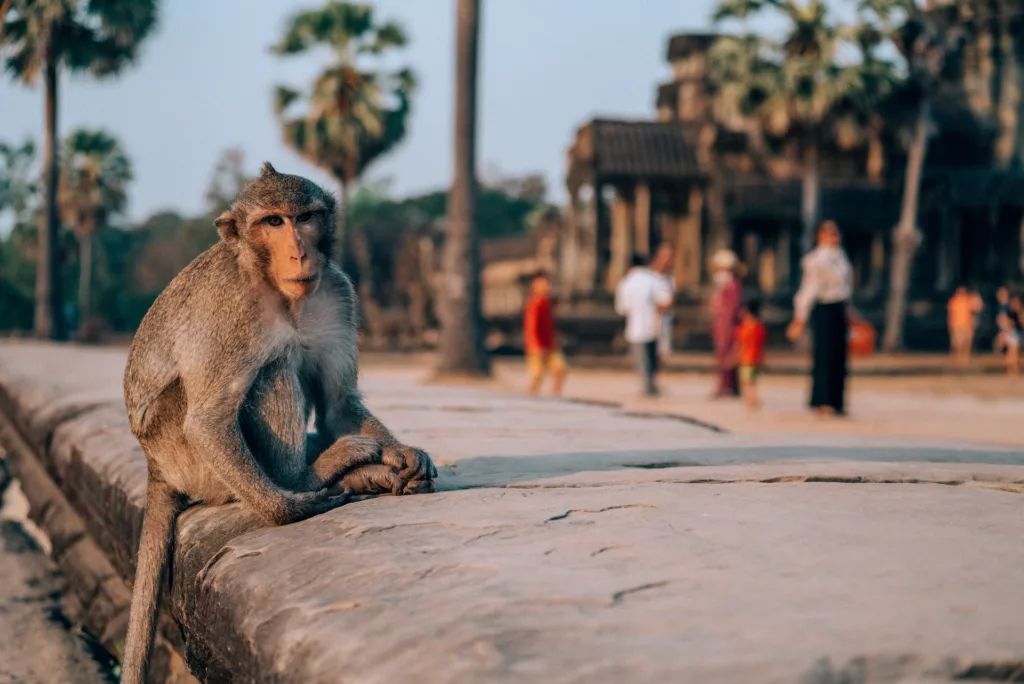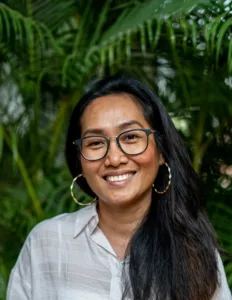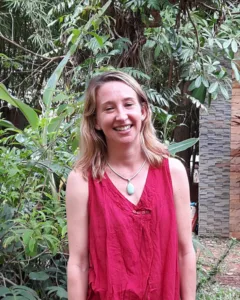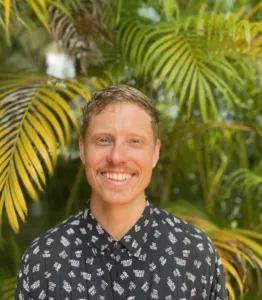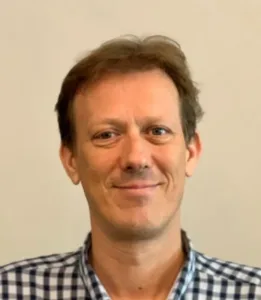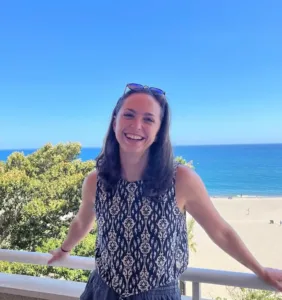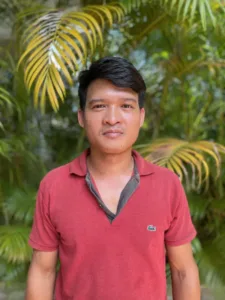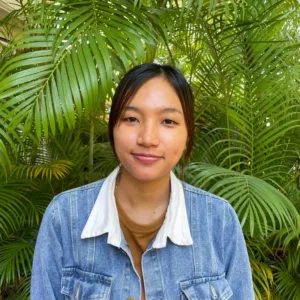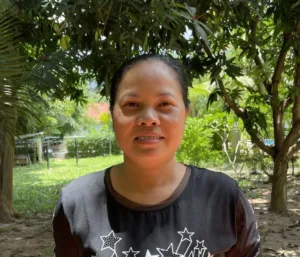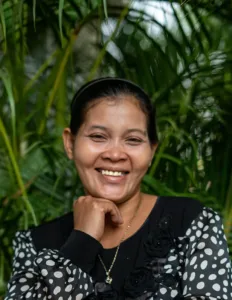Cambodia
Study Abroad in Cambodia
Have you ever wanted to explore towering ancient temples, take a tuk-tuk through a bustling market town, meet with a group of Buddhist monks, listen for the hauntingly beautiful call of a pileated gibbon, or observe endangered Asian elephants?
Whether you’re an experienced traveler or looking for your first trip to another country, studying abroad is an important component of your college career. Living abroad gives you the opportunity to explore new places and learn about different cultures, gaining important global perspectives, discovering new things about yourself, and building lifelong friendships.
Our programs in Cambodia take place in the country’s freshwater ecosystems, dense forests, highlands, and temples. Courses and fieldwork focus on key environmental issues faced here such as environmental justice, biodiversity conservation, environmental policy, and climate change. With severe climate change impacts already visible, Cambodia is a case study in resilience. Adaptation and collaborative conservation efforts are necessary for the people of Cambodia to ensure food security and limit biodiversity loss in a time of rapid development. Our research here examines these efforts on the ground and provides data to support a path toward a more sustainable future for Cambodia.
Programs
Environmental Justice and Mekong Ecologies
See Program Costs
Program Costs
- Tuition
- Room & Board
- Total
Elephants of Southeast Asia
See Program Costs
Program Costs
- Tuition
- Room & Board
- Total
Where You'll be Living
The most urban SFS Center lies on the outskirts of Siem Reap, near the famed temples of Angkor. The Center is a breezy, modern campus nestled in a quiet neighborhood minutes away from the bustling downtown area where you will find restaurants, artisan shops, markets, and many Cambodian cultural activities.
- Dorm living with air-conditioned, four-person bunkrooms
- Classroom building with library and balcony
- Student lounge with open loft and beanbag chairs
- Expansive open-air dining area, and on-site cooking staff
- Gyms and running routes in surrounding neighborhood
- Swimming pool, badminton court, and hammock bungalow
Know before you go
Click on each dropdown to explore details about life at this Center, and determine if it’s the right fit for you.
Program experience
Living Conditions & Daily Life
Students follow a structured schedule with classes and field activities on most weekdays, usually from 7 AM to 7 PM, including occasional multi-day trips. Evenings and some weekends provide personal time for independent exploration of Siem Reap’s markets, restaurants, and cultural sites.
Students live in shared dormitories with communal dining facilities where meals are provided. A daily curfew is enforced throughout the program. A kitchenette with a microwave and small oven is available, and students are occasionally permitted to use the full kitchen.
Independent travel outside Cambodia during the semester is not permitted, though summer students will also travel to Thailand. Students spend considerable time in Siem Reap and may explore local trails and city spaces during free time.
Physical Readiness
Field activities involve moderate physical demands, including walking tours, field research, biking, and travel by van or bus. Students should expect hot, humid conditions, muddy and uneven terrain, and occasional loud boat travel, which may cause motion sickness.
Students must also adapt to long travel days (5–9 hour bus rides), airplane travel, and varied living conditions, including brief local homestays with limited amenities such as no plumbing, air conditioning, or reliable Wi-Fi. Flexibility is key.
Travel & Transitions
The program is based in Siem Reap and includes frequent travel to both urban and remote locations across Cambodia (and Thailand in summer). Students visit rural communities and field sites where living conditions may be austere, and overnight stays often involve minimal comfort.
Summer participants split time between Cambodia and Thailand, experiencing both urban centers like Siem Reap and Bangkok and remote field sites that require adaptability.
Location & Culture
Program Location & Natural Environment
This program is rooted in the busy, expanding city of Siem Reap, complemented by frequent excursions to rural villages and natural sites. Students have easy access to local amenities—markets, cafes, pharmacies, and shops are a 5–10-minute tuk-tuk ride from the center. Students are immersed in high-sensory environments, from city traffic and market sounds to quieter rural areas. Encounters with spiders, geckos, reptiles, and insects are routine, and sensory stimulation, especially in cities, can be intense.
Cultural & Linguistic Differences
Cambodia’s rich cultural traditions may differ significantly from students’ home cultures. Students engage with communities that observe traditional gender roles and norms, including modest dress and social behavior. Dress is conservative, and respectful attire is required, especially when visiting historical and religious sites and in rural communities outside of Siem Reap.
Courses are taught in English, and no prior Khmer or Thai language proficiency is required. However, students receive basic Khmer language lessons to help with everyday communication. English is common in tourist areas but less prevalent in rural regions.
health
Allergies & Dietary Preferences
Khmer cuisine commonly includes fish sauce, peanuts, and coconut milk. Dishes like amok (coconut fish curry) and various noodle soups are common. Peanut and shellfish products are used frequently, particularly in street food and rural kitchens.
Substitution and avoidance are often not possible in rural settings, and cross-contamination risks are high. Students do not have access to a full kitchen for daily use but may dine out locally or order delivery. Outside of Siem Reap, vegetarian or vegan protein alternatives are limited or unavailable.
Cross-contamination accommodations for advanced allergies abroad may not be feasible. Students with severe or life-threatening allergies and/or strict dietary requirements must consult with medical professionals and [email protected] before applying.
Required Vaccinations & Health Care
SFS does not require specific vaccinations, however, malaria prophylaxis is required for excursions outside Siem Reap (approx. 6–8 weeks during semesters, and the full summer session). For additional recommendations, consultation with a travel medicine professional is strongly advised before departure. For summer programs, see local recommendations for both Cambodia and Thailand before traveling.
Advanced care is approximately 20 minutes from the SFS Center in Siem Reap, but in critical cases, students may require air evacuation to Phnom Penh or Bangkok. During field excursions, students may be 9+ hours from professional care.
An English-speaking counselor is available on an as-needed basis, but psychiatric and advanced mental health services are not available in Cambodia.
Routine in-person medical and counseling services are not feasible during the program. Students must bring a full supply of any prescription medications, including psychotropic medications, for the entire duration of the program, as local refills may not be available without prior arrangements.
PRogram Costs
Study abroad is an investment in yourself – you’ll return home with new experiences, skills, knowledge, and friendships that will stay with you for the rest of your life. SFS program costs cover a variety of expenses, including:
- Pre-program advising and on-site orientation
- Tuition and research fees
- Housing at the field station and on excursions
- Daily meals and snacks
- Airport transfers (for arrival/departure)
- Field excursions and cultural activities
- Student success and wellness team on site
- 24/7 mental health and well-being support
- Emergency evacuation and repatriation insurance
- Official transcript processing
Financial Aid
We know cost can be one of the biggest barriers to studying abroad. At SFS, we’re committed to making our programs accessible to students which is why we award a generous amount in need-based financial aid each year. Our Admissions Team has worked with thousands of students and are here to answer your questions about the SFS aid process, aid available through your home school, and funding from external sources.
SFS Financial Aid: Need-based aid packages typically consist of a combination of scholarships, grants, and zero- and low-interest loans. SFS matches Federal Pell Grant funding for students applying to an SFS semester program.
Home School Aid: Be sure to ask your home school study abroad office or financial aid office what financial aid resources might be available to support your study abroad experience.
External Funding Opportunities: Organizations such as the Fund for Education Abroad or the Gilman International Scholarship Program award scholarships to students going abroad. These can be a great opportunity to reduce the cost of your program even more.
Research
Research at the SFS Center for Environmental Justice and Mekong Ecologies covers a diverse array of topics – from the impacts of climate change on local communities and ecosystems to the transfer of traditional ecological knowledge. Students and faculty work with government partners, community members, Indigenous groups, NGOs, and other key stakeholders. Our faculty and students seek to analyze and develop strategies to assess species richness and support conservation initiatives in Cambodia.
Our research focuses primarily on the following themes:
- Environmental justice
- Climate change impacts
- Elephant ecology
- Traditional ecological and medicinal knowledge
- Biodiversity conservation
- Environmental anthropology
- Influences of Buddhism on conservation
Community
SFS is an active part of the Siem Reap community, where we have been based since 2014.
We have built long-term, collaborative relationships in the communities around the Center. We developed our research plans based on the environmental issues that the community and surrounding ecosystems face. Throughout the program, students collaborate with local students at the Paññāsāstra University of Cambodia (PUC), take a short homestay in a floating village, visit bustling markets, and attend festivals.
At the end of each semester program, we host a Community Research Night where select students will present their research findings to the community. SFS research data is shared with the community, local NGOs, and the Cambodian government.
